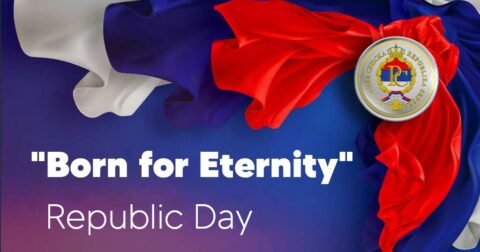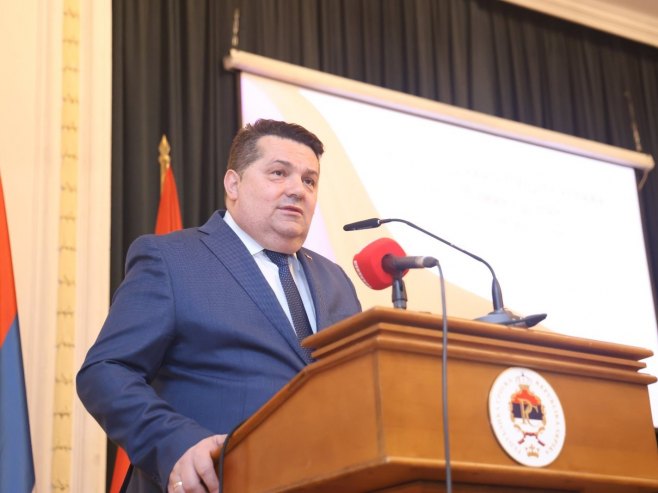The story from November 1995 persists about how Alija Izetbegović initially refused to sign the final version of the agreement drafted at the Wright-Patterson Air Force Base in Dayton.
To persuade him, Richard Holbrooke allegedly made a promise that led Alija to eventually sign the peace agreement.
To this day, it remains uncertain what was specifically promised. However, political developments in Bosnia and Herzegovina over the past three decades suggest a likely assumption—that Holbrooke promised Alija that the United States would create, through peaceful means, what could not be achieved in war or Dayton: a Bosnia tailored to Bosniaks.
Of course, Holbrooke did not account for the persistent Serb resistance, which continues to this day. The symbolic and identity significance of Republika Srpska for Serbs in Bosnia has remained a threat to all centralist ideas and plans consistently pushed by the West for over three decades.
Nevertheless, the foreign factor has not abandoned its plan to delegitimize Republika Srpska both constitutionally and symbolically, nor has the Serbian political elite given up on defending Srpska.
What was not obvious in Dayton in 1995, but later became evident through the actions of certain international representatives in Bosnia, was the agenda that the peace agreement was intended only as a temporary solution. The idea was to achieve the unitarization of Bosnia and Herzegovina through peaceful means and immense Western pressure after halting the conflict.
To accomplish this, it was necessary to weaken the Dayton positions of the entities and, consequently, the constituent peoples—since only one of the three nations saw a benefit in this Western experiment.
To implement this plan, the international community resorted to outright colonial methods, enforcing the illusion of legitimacy for future legal abuses by various high representatives. Alongside domestic judicial systems under American influence, their task was to execute this plan of centralization and unitarization. However, no consensus was ever reached among the constituent peoples, which is why many imposed changes to Bosnia’s political and legal systems have never been constitutionally recognized.
The lack of internal consensus has been noted by many political scientists, including James Kellas. Despite his anti-Serb perspective in the book “Nationalist Politics in Europe” (2004), Kellas admitted that creating a national state in Bosnia and Herzegovina was impossible because loyalty to Bosnia existed only among Bosniaks, while Serbs and Croats viewed Serbia and Croatia as their national states.
Similarly, Croatian political scientist Mirjana Kasapović wrote in 2005 that due to external pressure forcing them to live in an unwanted state, Serbs and Croats developed patriotism only toward their own national segments, not the entire state.
Thus, only Bosniaks remained loyal to the vision of a united and unitary Bosnia, disregarding the positions of the other two nations. To operationalize this, the Bosniak political elite, under Western mentorship, began promoting the idea of a unitary civic Bosnia and Herzegovina based on the principle of “one person, one vote.” Beneath this democratic façade lay hegemonic intentions to establish a unitary state, which, given demographic realities, would effectively become a Bosniak national state at the expense of the other two constituent peoples.
Interestingly, the Bosniak political elite considers this plan a form of “natural right,” rooted in the persistently propagated narrative of victimhood, arguing that Bosniak political rights should stem from claims of having suffered the most during the war.
Citing Brubaker’s concept of “state nationalization,” Kasapović noted that Bosniaks unilaterally claimed the status of the “main nation” in Bosnia and labeled this process as the “Bosniakization of Bosnia.” She interpreted these motives as compensation for alleged centuries-long oppression by Christian powers from both the East and West. Based on this “right,” Bosniaks argue that governance should follow the principle of “one person, one vote,” securing democratic dominance for the largest national group in Bosnia and compensation for their propagated victimhood narrative.
Conversely, Bosniaks see this as a natural political process. For example, Omer Ibrahimagić once wrote that Bosnia had historically shaped itself as a nation comprising all religions within its territory, viewing modern Bosnia as a political reincarnation of Bosniak identity. He argued that this process was not equally advanced among all religious communities, suggesting that Bosniaks were more aware of it than “Bosnian Catholics” and “Bosnian Orthodox,” who, he claimed, needed more time to shed decades of “Serbianization” and “Croatianization.”
Leaving aside these unrealistic and absurd theses, it is notable that Bosniak intellectuals ignore the fact that modern Bosnia and Herzegovina was established through the Dayton Agreement, which not only ended the war but also created this state framework. No “natural right” supports Bosniak political ambitions.
Former OHR official Philip LeRue Martin wrote that Republika Srpska has resisted international attempts to “reassemble” Bosnia since the end of the 1995 war. He concluded that “those who resisted unitarization before the war now resist post-war state-building efforts.”
Ultimately, if Bosniaks and their Western mentors believe in imposing “Bosniakization,” then the political resistance offered by Republika Srpska should not come as a surprise.
This scenario could have been anticipated even back at the Wright-Patterson base in 1995—that dogmatic insistence on centralization and unitarization of Bosnia would not yield the desired results. At the time, the “peacemakers” refused to even consider resolving Bosnia’s issues through other methods, including territorial division. Instead, they believed they could enforce a state structure through sheer power, ignoring the deeply divided ethnic communities rooted in conflict and history.
It’s no wonder that Sarajevo still clings to Holbrooke’s alleged promise, even though nearly three decades after the war, it is clear that this experiment has failed and that Holbrooke deceived Alija.
(This project, “Serbian Idea – Harmony of Generations: Serb Political and Cultural Thought and How New Generations Are Socialized,” is supported by the Ministry for Scientific and Technological Development and Higher Education of Republika Srpska.)
s
Source: Glas Srpske









